- Clone
- 93 (See other available formats)
- Regulatory Status
- RUO
- Other Names
- Fcγ R III/II, Ly-17
- Isotype
- Rat IgG2a, λ
- Ave. Rating
- Submit a Review
- Product Citations
- publications
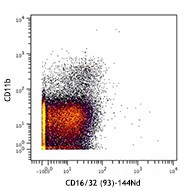
-

C57BL/6 mouse splenocytes stained with 148Nd-anti-CD11b (M1/70) and 144Nd-anti-CD16/32 (93). Data provided by DVS Sciences.
| Cat # | Size | Price | Quantity Check Availability | Save | ||
|---|---|---|---|---|---|---|
| 101335 | 100 µg | 106 CHF | ||||
CD16 is low affinity IgG Fc receptor III (FcR III) and CD32 is FcR II. CD16/CD32 are expressed on B cells, monocytes/macrophages, NK cells, granulocytes, mast cells, and dendritic cells. The Fc receptors bind antibody-antigen immune complexes and mediate adaptive immune responses.
Product DetailsProduct Details
- Verified Reactivity
- Mouse
- Antibody Type
- Monoclonal
- Host Species
- Rat
- Immunogen
- Sorted pre-B cells
- Formulation
- Phosphate-buffered solution, pH 7.2, containing 0.09% sodium azide and EDTA.
- Preparation
- The antibody was purified by affinity chromatography.
- Concentration
- 1.0 mg/ml
- Storage & Handling
- The CD16/32 antibody solution should be stored undiluted between 2°C and 8°C.
- Application
-
FC - Quality tested
CyTOF® - Verified - Recommended Usage
-
This product is suitable for use with the Maxpar® Metal Labeling Kits. For metal labeling using Maxpar® Ready antibodies, proceed directly to the step to Partially Reduce the Antibody by adding 100 µl of Maxpar® Ready antibody to 100 µl of 4 mM TCEP-R in a 50 kDa filter and continue with the protocol. Always refer to the latest version of Maxpar® User Guide when conjugating Maxpar® Ready antibodies.
- Application Notes
-
Clone 93 can be used for blocking of CD16/CD32 interactions with the Fc domain of immunoglobulins, but is not the same clone as 2.4G2.
The 93 mAb is specific to the common epitope of CD16/CD32. Additional reported applications (for the relevant formats) include: immunoprecipitation1 and blocking of Fc-mediated reactions in functional studies2,4,23. It is useful for blocking non-specific binding of immunoglobulin to Fc receptors. For blocking of Fc receptors in flow cytometric analysis, pre-incubate the cells with purified anti-CD16/CD32 antibody (=1.0 µg per 106 cells in 100 µL volume) for 5-10 minutes on ice prior to immunostaining. For highly sensitive assays, we recommend Ultra-LEAF™ purified antibody (Cat. No. 101330) (Endotoxin <0.01 EU/µg, Azide-Free, 0.2 µm filtered). - Additional Product Notes
-
Maxpar® is a registered trademark of Standard BioTools Inc.
-
Application References
(PubMed link indicates BioLegend citation) -
- Personal communication (IP)
- Oliver AM, et al. 1999. Hybridoma 18:113. (Block)
- Brummel R and Lenert P. 2005. J. Immunol. 174:2429.
- Terrazas LI, et al. 2005. Int. J. Parasitol. 35:1349. (Block)
- Clements JL, et al. 2006. J. Immunol. 177:905.
- Mohamed W, et al. 2010. Infect Immun. 78:3306. PubMed
- Ouchi T, et al. 2011. J. Exp Med. 208:2607. PubMed
- Kmieciak M, et al. 2011. J. Vis. Exp. 47:2381. PubMed
- Yamazaki S, et al. 2012. PLoS One. 7:e51665. PubMed
- Li J, et al. 2012. Arthritis Rheum. 64:1098. PubMed
- Azuma M, et al. 2012. Oncoimmunology. 1:581. PubMed
- Koon HW, et al. 2013. J. Vis. Exp. 68:4208. PubMed
- Hegde VL, et al. 2013. J Biol Chem. 288:36810. PubMed
- Huang J, et al. 2013. J. Immunol Methods. 387:254. PubMed
- Dutow P, et al. 2014. J Infect Dis. PubMed
- Fan Y, et al. 2014. J Exp Med. 211:313. PubMed
- Huang HN, et al. 2014. Antimicrob Agents Chemother. 58:1538. PubMed
- Takei S, et al. 2014. Vaccine. 32:3066. PubMed
- Richardson ML, et al. 2014. PLoS Negl Trop Dis. 8:2825. PubMed
- Cekanaviciute E, et al. 2014. J Immunol. 193:139. PubMed
- Kimura T, et al. 2014. Int Immunol. 26:697. PubMed
- Everad A, et al. 2014. Nat Commun. 5:5648. PubMed
- Cenci E, et al. 2006. J. Leuko. Biol. 79(1):40-5. (Block)
- Product Citations
-
- RRID
-
AB_2563723 (BioLegend Cat. No. 101335)
Antigen Details
- Structure
- Ig superfamily, 40-60 kD
- Distribution
-
B cells, monocyte/macrophages, NK cells, neutrophils, mast cells, dendritic cells
- Function
- Low affinity receptors for IgG
- Ligand/Receptor
- IgG
- Cell Type
- B cells, Dendritic cells, Macrophages, Mast cells, Monocytes, Neutrophils, NK cells
- Biology Area
- Immunology, Innate Immunity
- Molecular Family
- CD Molecules, Fc Receptors
- Antigen References
-
1. Barclay AN, et al. 1997. The Leukocyte Antigen FactsBook Academic Press.
2. Unkeless JC. 1989. J. Clin. Invest. 83:355.
3. Qiu WQ, et al. 1990. Science 248:732. - Gene ID
- 14130 View all products for this Gene ID 14131 View all products for this Gene ID
- UniProt
- View information about CD16/32 on UniProt.org
Related Pages & Pathways
Pages
Related FAQs
- Can I obtain CyTOF data related to your Maxpar® Ready antibody clones?
-
We do not test our antibodies by mass cytometry or on a CyTOF machine in-house. The data displayed on our website is provided by Fluidigm®. Please contact Fluidigm® directly for additional data and further details.
- Can I use Maxpar® Ready format clones for flow cytometry staining?
-
We have not tested the Maxpar® Ready antibodies formulated in solution containing EDTA for flow cytometry staining. While it is likely that this will work in majority of the situations, it is best to use the non-EDTA formulated version of the same clone for flow cytometry testing. The presence of EDTA in some situations might negatively affect staining.
- I am having difficulty observing a signal after conjugating a metal tag to your Maxpar® antibody. Please help troubleshoot.
-
We only supply the antibody and not test that in house. Please contact Fluidigm® directly for troubleshooting advice: http://techsupport.fluidigm.com/
- Is there a difference between buffer formulations related to Maxpar® Ready and purified format antibodies?
-
The Maxpar® Ready format antibody clones are formulated in Phosphate-buffered solution, pH 7.2, containing 0.09% sodium azide and EDTA. The regular purified format clones are formulated in solution that does not contain any EDTA. Both formulations are however without any extra carrier proteins.
Other Formats
View All CD16/32 Reagents Request Custom Conjugation| Description | Clone | Applications |
|---|---|---|
| Biotin anti-mouse CD16/32 | 93 | FC |
| FITC anti-mouse CD16/32 | 93 | FC |
| PE anti-mouse CD16/32 | 93 | FC |
| Purified anti-mouse CD16/32 | 93 | FC,IP,Block |
| Ultra-LEAF™ Purified anti-mouse CD16/32 | 93 | FC,IP,Block |
| Alexa Fluor® 647 anti-mouse CD16/32 | 93 | FC |
| PE/Cyanine7 anti-mouse CD16/32 | 93 | FC |
| TruStain FcX™ (anti-mouse CD16/32) | 93 | FC |
| PerCP/Cyanine5.5 anti-mouse CD16/32 | 93 | FC |
| APC anti-mouse CD16/32 | 93 | FC |
| APC/Cyanine7 anti-mouse CD16/32 | 93 | FC |
| Brilliant Violet 421™ anti-mouse CD16/32 | 93 | FC |
| Brilliant Violet 510™ anti-mouse CD16/32 | 93 | FC |
| Purified anti-mouse CD16/32 (Maxpar® Ready) | 93 | FC,CyTOF® |
| Brilliant Violet 711™ anti-mouse CD16/32 | 93 | FC |
| TotalSeq™-A0109 anti-mouse CD16/32 | 93 | PG |
| TotalSeq™-B0109 anti-mouse CD16/32 | 93 | PG |
| TotalSeq™-C0109 anti-mouse CD16/32 | 93 | PG |
Customers Also Purchased
Compare Data Across All Formats
This data display is provided for general comparisons between formats.
Your actual data may vary due to variations in samples, target cells, instruments and their settings, staining conditions, and other factors.
If you need assistance with selecting the best format contact our expert technical support team.
-
Biotin anti-mouse CD16/32
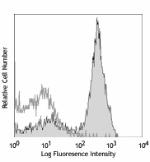
C57BL/6 mouse splenocytes stained with biotinylated 93, foll... -
FITC anti-mouse CD16/32
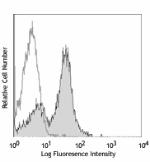
C57BL/6 mouse splenocytes stained with 93 FITC -
PE anti-mouse CD16/32
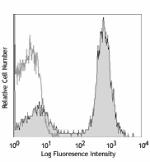
C57BL/6 mouse splenocytes stained with 93 PE -
Purified anti-mouse CD16/32
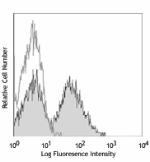
C57BL/6 mouse splenocytes stained with purified 93, followed... -
Ultra-LEAF™ Purified anti-mouse CD16/32
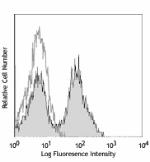
C57BL/6 mouse splenocytes stained with Ultra-LEAF™ purified ... -
Alexa Fluor® 647 anti-mouse CD16/32
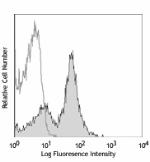
C57BL/6 mouse splenocytes stained with Alexa Fluor® 647 -
PE/Cyanine7 anti-mouse CD16/32
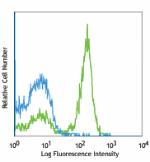
C57BL/6 splenocytes stained with 93 PE/Cyanine7 -
TruStain FcX™ (anti-mouse CD16/32)
-
PerCP/Cyanine5.5 anti-mouse CD16/32
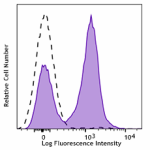
C57BL/6 mouse splenocytes stained with CD16/32 (clone 93) Pe... -
APC anti-mouse CD16/32
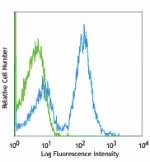
C57BL/6 splenocytes stained with 93 APC -
APC/Cyanine7 anti-mouse CD16/32

BALB/c splenocytes stained with CD45R/B220 FITC and CD16/32 ... -
Brilliant Violet 421™ anti-mouse CD16/32
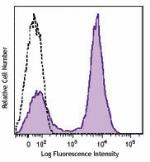
C57BL/6 mouse splenocytes were stained with CD16/32 (clone 9... -
Brilliant Violet 510™ anti-mouse CD16/32
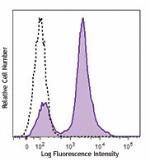
C57BL/6 mouse splenocytes were stained with CD16/32 (clone 9... -
Purified anti-mouse CD16/32 (Maxpar® Ready)
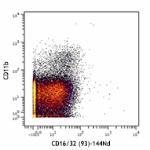
C57BL/6 mouse splenocytes stained with 148Nd-anti-CD11b (M1/... -
Brilliant Violet 711™ anti-mouse CD16/32
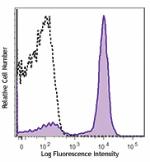
C57BL/6 mouse splenocytes were stained with CD16/32 (clone 9... -
TotalSeq™-A0109 anti-mouse CD16/32
-
TotalSeq™-B0109 anti-mouse CD16/32
-
TotalSeq™-C0109 anti-mouse CD16/32

 Login / Register
Login / Register 










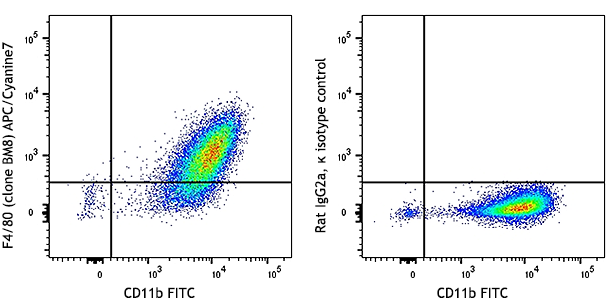
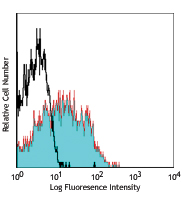
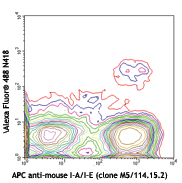
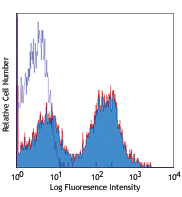



Follow Us